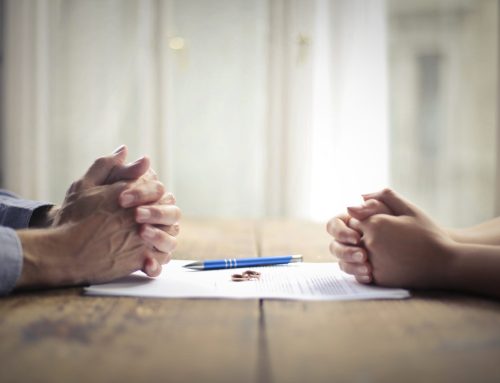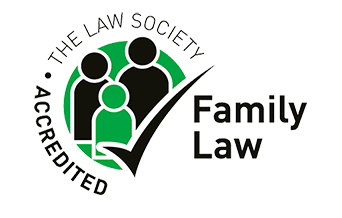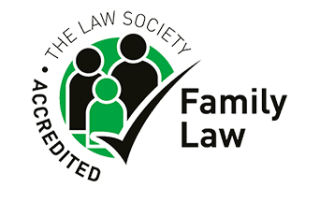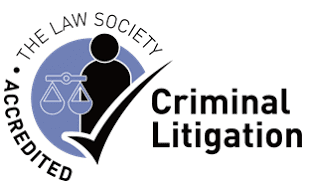Divorce and Family Law in the UK
‘What is my partner entitled to?’ is a very common question we get asked at Astraea Linskills. Divorce and family law can be difficult and complex areas to navigate. At Astraea Linskills, we understand the emotional toll that divorce can take and are here to help. We have a team of experienced family law solicitors who can provide the advice and support you need to understand what your partner is entitled to in a divorce in the UK.
Our solicitors can provide you with tailored advice on the legal aspects of divorce, such as division of assets, pension entitlements and maintenance payments. We have the expertise to ensure that you understand the legal process and the rights of each partner involved. We strive to provide a compassionate and understanding approach while ensuring that all parties are treated fairly and respectfully.
What is My Partner Entitled to in a Divorce UK?
One of the most common questions about divorce is, “What is my partner entitled to in a divorce?” This is an important question to ask, as it can help determine the outcome of a divorce settlement. In the UK, the law states that each partner is entitled to a fair share of the assets acquired during the marriage, including property, savings, pensions, and other purchases. The court may consider the contributions made by each partner during the marriage and the length of the marriage.
The court will always first take into account any children involved in the divorce. At Astraea Linskills, our experienced family law team can provide the advice and support you need during a divorce. Our team of experts can help you understand your rights and entitlements and provide guidance on ensuring a fair and equitable settlement. We know that divorce can be a complex and emotional process, and we’re here to help you every step of the way.

Understanding the UK Divorce Process
When going through a divorce, it can be challenging to understand what your partner is entitled to. At Astraea Linskills, we understand the complexity of the UK divorce process and the emotions that come with it. We provide compassionate and knowledgeable advice on what you and your partner may be entitled to in a divorce. It is important to remember that fairness is the backbone of the law surrounding divorce in the UK. Any assets or income acquired during the marriage will usually be divided equally between both partners. Depending on the individual circumstances, a court can also award a lump sum or periodic payments to one partner from the other.
What is my partner entitled to – The Financial Implications of a UK Divorce
When it comes to the financial implications of a UK divorce, the answer to the question ‘What is my partner entitled to in a divorce?’ is only sometimes straightforward. The amount of money and assets your partner is entitled to will depend on several factors, including each party and any relevant child’s needs and what available resources there are. The best next step for you to understand this further would be to contact us. We can discuss your unique circumstances and provide a clear picture for you.
The Impact of a Divorce on Children
When it comes to divorce, there often needs to be more clarity about what your partner is entitled to. Astraea Linskills, an award-winning family law firm based in Liverpool, is well-versed in the intricacies of the UK divorce system. We can help you understand the legal process and the financial implications of a divorce and provide advice on what your partner is entitled to.
It’s important to remember that a divorce can significantly impact children, so it’s essential to make sure that any decisions are taken with their best interests in mind. Astraea Linskills can help you consider the impact of a divorce on your children and provide advice on ensuring their rights are protected throughout the process.
What is my Partner Entitled to – Dividing Assets: Who Gets What?
When it comes to divorce, one of the most challenging issues to resolve is the division of assets. Understanding what your partner is legally entitled to in a divorce and how the assets should be divided is important. We can provide you with the guidance and support you need to ensure that the division of assets is fair and just. Our team will work with you to ensure that your divorce is handled in a compassionate and respectful manner and that your rights and interests are protected.
Tips for Making a Divorce Easier
When couples decide to divorce, it can be a difficult and emotional time for both parties. It is essential to understand what your partner is entitled to in a divorce so that you can make the process as smooth as possible.
In the UK, the starting point in law is that assets acquired during the marriage are generally split equally between both partners, including assets such as property, cars, savings and pensions. Any assets owned before the marriage or acquired after the breakdown may remain the property of the individual who owns them, but this will depend on what each party’s and any child’s needs are. We can help you understand what your partner is entitled to in a divorce and ensure the process is as stress-free as possible.
In conclusion, understanding the UK divorce process, financial implications, and the impact of a divorce on children is essential for anyone considering a divorce in the UK. Astraea Linskills is an award-winning family law firm based in Liverpool, covering the whole of the UK, and can provide expert advice and support throughout the divorce process. Ultimately, it is important to remember that both parties should be treated fairly and equitably when dividing assets. If you have any questions or concerns about your divorce, Astraea Linskills are here to help.
What is my Partner Entitled to – Frequently Asked Questions
Q1: What is the divorce process in the UK?
A1: The divorce process is started by one or both parties together. The only ground for divorce is that the marriage has irretrievably broken down. If it is started by one party, the other party has to respond to their application online. After 20 weeks, the conditional order can be applied for which is the half-way point in the proceedings.
Crucially, this is the point at which the Court can make a financial order. Six weeks after the conditional order, the Court will grant the final order of divorce, which dissolves the marriage. This is the new streamlined no-fault process which does away with old terminology such as decree nisi and decree absolute.
Q2: What are the financial implications of a UK divorce?
A2: The economic impact of a UK divorce depends on the parties’ circumstances. Generally speaking, assets such as property, bank accounts, and pensions are divided between the parties. The court will also consider maintenance payments, which may be paid by one party to the other. In some cases, a lump sum may be awarded to one party. In some cases, pension sharing orders may be made. Pensions on divorce is a very complex part of the divorce process and it is crucial for parties to take legal advice to ensure that they understand this process.
Q3: How is the impact of a divorce on children assessed?
A3: The court will consider the impact of a divorce on children when making decisions about maintenance payments and asset division. The court will consider factors such as the age of the children, their relationship with each parent, and their needs. In the context of where a child will live and what time they spend with the other parent, this is dealt with separately to the divorce process. In that process, the court will also take into account the wishes and feelings of the children if they are old enough to express them.
Q4: How are assets divided in a UK divorce?
A4: Assets are usually divided between the parties in a UK divorce. The court will consider factors such as the length of the marriage, the financial needs of each party, and the contributions each party has made to the marriage. The court will also consider any assets that were acquired before the marriage or as a result of inheritance or gifts.
Q5: What are the common causes of divorce in the UK?
A5: The most common causes of divorce in the UK are adultery, unreasonable behaviour, and separation for at least two years. Other common causes include financial problems, communication breakdown, and domestic violence.
Q6: What tips can be used to make a divorce easier?
A6: It is crucial to remain focused on the future and to remember that the divorce process is a necessary step towards a better life. It is also essential to seek professional advice from a lawyer or counsellor and to communicate openly and honestly with your partner. It can also be helpful to take the time to reflect on the situation, talk through any emotions you may be feeling, and make plans for a better future.














Leave A Comment
You must be logged in to post a comment.